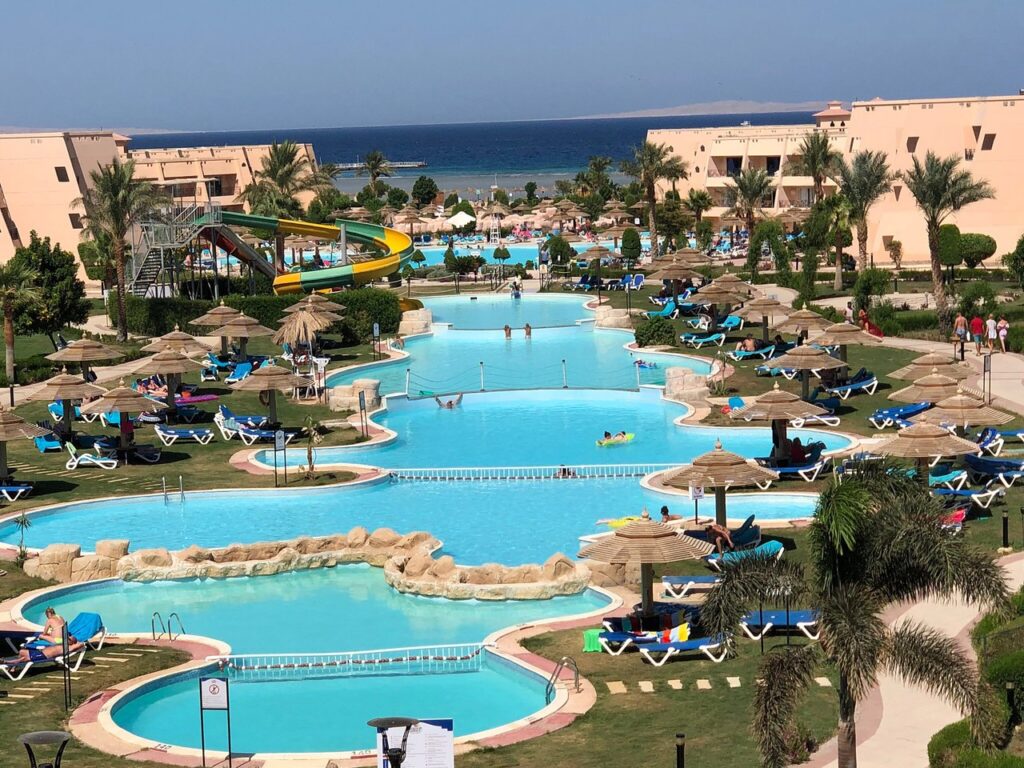With a rich history and culture, during the past several years, Syria has faced serious political and economic difficulties. The Syrian Civil War, which began in 2011, made them take deep wounds in every way. While the hostilities have largely subsided, the recuperation of the country is still slow. Despite such ongoing difficulties, there are signs that some sectors of the economy may once more be starting to present a potential for investment and growth, including real estate.
The question of whether foreigners are allowed to buy property in Syria ranks among the most frequently asked, with an answer as complex as everything related to Syria, influenced both by the country’s legal framework and by the ongoing instability still affecting the region. In this article, we take a closer look at whether foreigners can buy property in Syria, the legal landscape regarding property ownership, and certain risks and opportunities that come with investing in Syrian real estate.
Can Foreigners Buy Property in Syria?
The short answer to this is yes, but with huge limitations and deliberation. While the country does allow the buying of property by foreign nationals in some instances, it’s extremely cumbersome, with a lot of legal restrictions, mainly for non-Syrians and those with little experience in the local laws.
1. The Legal Framework for Foreign Ownership
Historically, Syria has been quite restrictive in granting foreign nationals any rights with regard to land or property ownership. There are strict regulations in place to protect the interests of Syrian citizens, and quite often, property laws are related to political and economic issues. However, it is by no means impossible for foreigners to own property in Syria, especially if certain criteria are satisfied.
Property Ownership in Syria – The Basics
Syrian law does not permit foreign nationals to own agricultural land, but they can own residential and commercial property. This has come to mean in practice that foreigners are allowed to buy apartments, villas, commercial buildings, offices, and so on, while ownership of rural or agricultural land remains largely taboo unless the property is for specific development purposes or tied to an investment project approved by the government.
Over the years, the government has enacted certain reforms that improve foreign investment, especially in real estate, within its overall drive to reconstruct the country. One such example is the Syrian Investment Law of 2019, encouraging foreign investment in particular sectors, including construction and real estate development. At the same time, these laws demand that in some cases, foreign investors be in partnership with Syrian nationals or companies, more so for large-scale projects.
Ownership of Property in Damascus and Major Cities
Property ownership for foreigners can be more accomplished in Syria’s capital, Damascus, as well as other major cities such as Aleppo and Latakia. The Syrian government allows foreign investors to have residential and commercial property within the urban areas in general. However, several conditions are attached:
– Ownership through a Local Partner: The most common form in which foreign investors hold property in Syria includes partnership with a Syrian national or a Syrian-owned company. This enables a foreign national to legally invest in real estate while the property ownership is actually technically held by the Syrian partner. This type of arrangement is used in commercial real estate dealings involving office buildings, hotels, and large residential apartments.
– Foreign Investment in Development Projects: Foreigners may also gain property in Syria through joint ventures regarding larger development projects. The Syrian government has offered incentives to foreign companies that would contribute to the country’s development process, specially concerning real estate and construction. In this case, property ownership can be shared between the foreign investor and local stakeholders or property may be leased to the foreign entity under long-term agreements.
– Compulsory Residency and Permits: Another way foreigners could obtain access to property ownership in Syria is with the aid of special residency permits or investment visas. For the latter, however, is usually granted on the basis of a large investment, as the eligibility criteria, too, are quite strict. Foreign nationals applying for ownership will have to prove that they either possess substantial financial resources or their investment will spur the local economy, especially in rebuilding and infrastructure development.
2. Types of Properties Foreigners Can Buy
Investors of foreign nationality must know that even though barred from owning land, they enjoy quite a leeway in different kinds of property, mainly in urban areas. These are:
– Residential Properties: Foreigners are permitted to buy apartments, villas, and other residential properties in the urban centers of Syria. In general, these are for own use or rental investment. Generally speaking, though, as already mentioned, an investor is obliged to agree upon an agreement with a Syrian citizen or a company to pass through such formalities.
– Commercial Properties: This is another common route for foreign nationals in the way of commercial property investments. This can be in the form of office space, retail locations, or commercial buildings. Again, this would most likely be in partnership with Syrian nationals or companies.
– Mixed-Use Developments: Besides, new mixed-use developments combining residential and commercial functions are emerging in big cities such as Damascus. Most foreign investments have shown up especially in the field of hospitality. Hotels, shopping centers, and mixed-use projects are usually made available for foreign investors through joint ventures with local developers.
3. Risks and Challenges of Buying Property in Syria
Any investment in real estate within Syria has many risks associated with it; hence a lot of care has to be taken before realistically moving into it. The risks oscillate between legal and bureaucratic obstacles, security concerns, market volatility, among other challenges. The following are some of the most important risks:
While for the most part, the Syrian Civil War is over, security in the country is not yet stable. Safety varies across different regions in Syria; most of them are still troubled by leftover conflict and/or tension between different political factions. The continued military presence, along with sporadic outbreaks of violence in parts of the country, makes any forecast about the security situation difficult, which may affect property values and returns on investment.
In particular, the security risk for foreign investors is very high in the areas outside the main urban centers such as Damascus. Cities such as Aleppo, Homs, and Deir ez-Zor suffered the results of war quite badly, and may still have various problems with respect to security and infrastructure.
Legal Complexity and Bureaucracy
The legal process of buying property in Syria can be extremely complicated, especially for foreigners. Basically, the country’s legal system does work, but often this has proven to be slow and bureaucratic. Property rights are sometimes not clearly defined, while property processing and transferring can be very long with many complications.
Another factor that will be equally challenging for foreign investors is the fact that they have to acquaint themselves with the local legal system. Most foreign buyers work through local lawyers and legal experts who can ensure that the sale is legitimate and that the property is free from disputes or any legal encumbrances.
Besides, lack of transparency in the property market increases fraud or corruption potentials that may delay a purchase or result in financial losses.
Economic and Market Risks
The conflict has torn down the economy of Syria, and though reconstruction is going on, it is unpredictable what the future will hold. Property values are extremely volatile in Syria and change according to the current political and economic situation. Any future inflation fluctuations, changes in the value of currency, and the imposition of certain sanctions on Syria are potentially unsubstantial for the real estate market.
The real estate sector in Syria is still at a recovering stage and faces extensive needs for investment in infrastructure and public services. Foreign investors may have potential difficulties liquidating investments quickly, especially if the country’s economy does not turn to stability in the coming years.
4. Foreign Investment Laws and Incentives
Among others, various government incentives to attract more investment in construction and real estate into the Syrian economy have entailed tax exemptions and reforms of relevant laws to facilitate investments in priority sectors, like rebuilding the infrastructure of the country, in order to attract foreign capital. At the same time, this means that, on the other side of the coin, such political and economic risks are high, while foreign investment is often plagued by uncertainty.
As of 2019, the Syrian government has come up with some kind of framework for foreign investment through Public-Private Partnerships (PPP), with major emphasis on real estate, tourism, and energy. In that regard, under the partnerships, a foreign company may have to jointly operate with local Syrian partners, along with adherence to certain investment criteria.
5. Alternatives for Foreigners
There exist a lot of hurdles for foreign investors to buy property directly in Syria, so most foreign investors enter the country’s market through other routes. These include:
– Real Estate Development Projects: Foreign companies may engage in large projects of real estate development in collaboration with local Syrian firms or government agencies at the local level. Such projects would require huge investment and entail the construction of new residential, commercial, or mixed-use developments.
– Investing through a Local Company: The alternative means that foreigners can invest in Syria is through joint ventures or local companies. This encompasses the setting up of businesses and the acquisition of property in corporate form, which provides greater flexibility and adherence to a legal framework for foreign investment.
Frequently Asked Questions
1. Can foreigners buy land in Syria?
Foreign ownership of agricultural land is not allowed in Syria, but a foreigner can buy residential and commercial properties within the urban area, provided he abides by the local laws and rules.
2. How can one buy property in Syria?
They usually invest in Syrian property through agreements of joint venture or in partnership with local Syrians. One can also invest in specified investment zones or in a development project sanctioned by the Syrian government.
3. Is buying property in Syria safe?
While some parts of Syria, especially the capital Damascus and government-controlled areas, are considered to be relatively safe, much of the country remains unstable. It is important that investors exercise caution and are sure about the security implications of their intended purchases based on the specific area in which they want to invest.
4. What are the risks of investing in real estate in Syria?
These include security risks, complicated legal issues, bureaucrat challenges, economic instability, and a volatile property market. Investors are advised to consult local expertise in order to reduce risks and complete the process.
5. Are there incentives for foreign investors in Syria?
Yes, the Syrian government employs incentives such as tax exemptions and legal reforms to attract foreign investment in construction and real estate projects. However, political and economic uncertainties remain major drawbacks.
Conclusion
Foreigners can buy real estate property in Syria. Still, the process is fraught with a lot of challenges. In fact, the interest of the foreign investors has been noticed in the Kurdish regions and in some areas of urban segments but, still, the legal, political, and economic risks involved are huge. They should also be fully aware of the complications that arise in buying property and look carefully at the security situation, a proper legal framework, and possible market volatility before finalizing an investment decision. They should consult local legal and real estate experts to ensure a problem-free transaction and understand the risks foreign investors could face.










